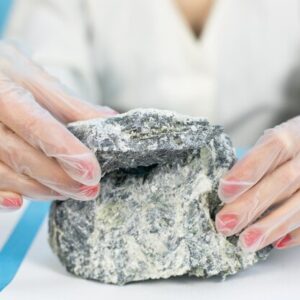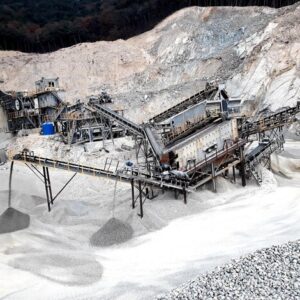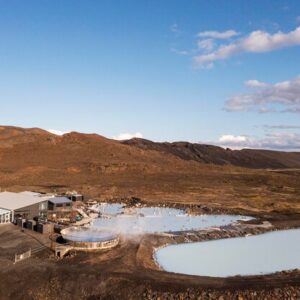Bentonite powder, a versatile and naturally occurring clay, has found extensive use across a broad range of industries. This fine, absorbent material is derived from volcanic ash and consists primarily of montmorillonite, a mineral with unique properties that make it ideal for various industrial applications. Bentonite powder’s ability to absorb water, swell, and form pastes has earned it a reputation as a valuable material for industrial processes, from drilling and construction to manufacturing and environmental management.
In this article, we will explore the many industrial applications of bentonite powder, its benefits, and how it is used in various sectors. From oil drilling to the production of foundry molds and environmental cleanup, bentonite powder plays a crucial role in enhancing efficiency, improving performance, and contributing to sustainability in numerous industries.
1. Bentonite Powder in Oil and Gas Drilling
Bentonite is widely used in the oil and gas industry, particularly in drilling operations. It is a key component of drilling mud, which serves several important functions in the drilling process. Bentonite powder is added to water or other liquids to create a slurry that helps lubricate and cool the drill bit, while also facilitating the removal of rock cuttings from the wellbore. This slurry is known as “drilling fluid” or “mud.”
– Drilling Fluid Properties
Bentonite’s unique ability to absorb water and swell makes it an excellent thickening agent for drilling mud. When mixed with water, bentonite forms a gel-like consistency that helps suspend rock cuttings and prevent them from falling back into the hole. This helps to maintain the stability of the borehole and improve the efficiency of the drilling process. The gel-like properties of bentonite also help in sealing the walls of the wellbore, preventing fluid loss to the surrounding rock formations.
In addition to its thickening properties, bentonite mud provides essential lubrication for the drill bit, reducing wear and tear on the equipment and improving its longevity. It also assists in cooling the drill bit during the drilling process, preventing overheating and extending the operational life of the machinery.
– Environmental Benefits
Bentonite is often preferred over synthetic polymers in drilling mud because it is biodegradable and environmentally friendly. This makes it a safer option for operations in sensitive environmental areas, where reducing the impact of drilling activities is a top priority. Bentonitic mud is also easier to dispose of and recycle, minimizing the potential environmental hazards associated with oil and gas drilling.
2. Bentonite Powder in Foundries
Bentonite powder is a critical component in the foundry industry, where it is used primarily for the production of molds and cores in metal casting. Bentonite’s ability to bind sand particles together and improve the cohesiveness of the mold is essential in creating molds that are durable and capable of withstanding high temperatures.
– Mold and Core Production
In metal casting, bentonite is mixed with sand to create a molding material known as “sand-bentonite mix.” This mixture is used to form molds in which molten metal is poured. Bentonite binds the sand particles together, allowing the mold to retain its shape during the pouring process. The quality of the mold is crucial, as it needs to withstand the intense heat of the molten metal without cracking or breaking.
Additionally, bentonite improves the permeability of the mold, allowing gases to escape during the casting process without causing defects in the final product. The addition of bentonite to the sand also enhances the mold’s ability to retain moisture, which is critical for producing high-quality castings.
– Coring and Casting Quality
Bentonite’s role extends to the creation of cores, which are used to form internal cavities within cast metal objects. By mixing bentonite with other materials, such as silica sand, foundries can create high-strength cores that can withstand the rigors of metal casting. These cores help to ensure that the final cast product meets precise dimensional specifications and has the desired structural integrity.
3. Bentonite Powder in Construction and Civil Engineering
Bentonite powder plays an important role in construction and civil engineering, particularly in soil stabilization, tunneling, and waterproofing. Its ability to absorb water, expand, and form a gel-like consistency makes it an excellent material for a variety of construction applications.
– Soil Stabilization
One of the most common uses of bentonite in construction is for soil stabilization. When bentonite is mixed with soil, it helps to improve the soil’s load-bearing capacity and prevent erosion. This is especially important in areas with loose or sandy soils, where the addition of bentonite can help create a more stable foundation for building structures.
Bentonite is often used in the construction of roads, railways, and airports, where it is mixed with soil to improve compaction and reduce settlement. It is also employed in the construction of embankments, dams, and retaining walls, where it helps to prevent soil movement and water infiltration.
– Drilling and Tunneling
In tunneling projects, bentonite is used as a drilling fluid, much like in the oil and gas industry. It is pumped into the borehole to stabilize the tunnel walls, preventing collapse during excavation. The slurry helps to cool the drill bit, lubricate the equipment, and transport excavated material out of the tunnel. Bentonite is particularly effective in tunnel boring machine (TBM) operations, where it is used to create a stable environment during the drilling process.
– Waterproofing
Bentonite is also used in construction as a waterproofing material. Due to its swelling properties, bentonite can create an impermeable barrier that prevents the infiltration of water into structures such as foundations, basements, and underground storage tanks. When bentonite is applied to construction surfaces, it forms a thick, flexible membrane that blocks water, ensuring the longevity and integrity of the structure.
4. Bentonite Powder in the Environmental Industry
Bentonite has found significant use in environmental applications, particularly in waste management, water treatment, and land reclamation. Its natural absorbent properties make it an ideal material for dealing with pollutants and contaminants.
– Landfills and Waste Containment
Bentonite is often used in landfills and waste containment systems to prevent the leakage of harmful substances into the surrounding environment. Bentonite is commonly mixed with other materials to create a composite liner, which is used to line the bottom and sides of landfills. This liner helps to prevent the seepage of toxic waste into the soil and groundwater, protecting the environment from contamination.
– Water Treatment
Bentonite is also used in water treatment processes, particularly in the removal of impurities and heavy metals. The clay has the ability to adsorb various contaminants from water, making it an effective material for purifying drinking water, wastewater, and industrial effluents. Bentonite’s ability to form flocs helps remove suspended solids and particulate matter from water, improving its clarity and quality.
– Oil Spill Remediation
Bentonite has proven to be an effective material for cleaning up oil spills. Its absorbent properties allow it to soak up and contain oil, preventing it from spreading and causing further environmental damage. Bentonite is often used in combination with other materials to create absorbent pads and booms that can be deployed in water bodies to contain and remove oil.
5. Bentonite Powder in Agriculture
Bentonite powder has applications in agriculture, where it is used to improve soil quality, enhance plant growth, and control pests. Its absorbent properties make it a valuable addition to fertilizers, pesticides, and soil conditioners.
– Soil Amendment
Bentonite is used in agriculture as a soil amendment to improve soil structure and water retention. When mixed with soil, bentonite helps to increase the soil’s cation exchange capacity (CEC), which improves its ability to retain essential nutrients. This is particularly important in soils that are low in organic matter or have poor water-holding capacity.
– Pesticide Carrier
Bentonite is also used as a carrier for pesticides and herbicides. Its ability to absorb water and release it slowly makes it an ideal material for carrying and delivering chemicals to crops. The clay helps to protect the active ingredients in pesticides, ensuring they remain effective over a longer period of time.
– Animal Feed
Bentonite is sometimes added to animal feed to improve its quality and nutritional content. It can act as a binding agent, improving the texture and consistency of the feed. Bentonites’ adsorptive properties may also help reduce the presence of mycotoxins in animal feed, ensuring that the feed is safe and free from harmful substances.
6. Bentonite Powder in Cosmetics and Pharmaceuticals
Bentonite is also widely used in the cosmetics and pharmaceutical industries. Its ability to absorb excess oils and impurities makes it an essential ingredient in many skincare and personal care products. Additionally, bentonite is used in the pharmaceutical industry for its role in drug formulations and as a stabilizer in various products.
– Cosmetic Uses
Bentonite is commonly found in facial masks, cleansers, and exfoliants. It helps to absorb excess oil, remove dirt, and detoxify the skin. Additionally, bentonite is used in makeup formulations, particularly in products like foundation and powder, to improve texture and provide a smooth finish. It is also used in deodorants and antiperspirants for its ability to absorb moisture and control odor.
– Pharmaceutical Applications
In the pharmaceutical industry, bentonite is used as a binding agent in tablets and as a stabilizer in liquid formulations. It helps to improve the consistency and texture of the product while also ensuring that the active ingredients remain stable during storage. Bentonite is also used in some topical treatments and ointments for its soothing and absorbent properties.
7. Bentonite Powder in Paper and Pulp Industry
Bentonite powder is also utilized in the paper and pulp industry for a variety of applications. Its ability to improve the quality of paper products and enhance the efficiency of the production process makes it an essential material in this sector. Bentonite is often used as a binder, filler, and thickening agent in paper production.
– Binder for Paper Production
Bentonite acts as a binder in the paper production process. When added to pulp, bentonite helps to improve the strength and durability of the paper. It increases the paper’s resistance to tearing and enhances its overall texture, making it more suitable for printing and writing. The clay also contributes to the smoothness of the paper’s surface, which is particularly important for high-quality printing applications.
– Improving Paper Brightness
In addition to its use as a binder, bentonite can also improve the brightness of paper. It helps to remove impurities and minerals from the pulp, leading to a cleaner and whiter product. This is particularly beneficial for the production of high-grade paper products, such as printing paper and tissue paper, where brightness and clarity are critical.
8. Bentonite Powder in Food Industry
Bentonite powder has a wide range of applications in the food industry, particularly as a processing aid, clarifying agent, and anti-caking agent. It is widely recognized for its natural and safe properties, making it a valuable ingredient in food production.
– Clarification of Beverages
Bentonite is often used in the food industry to clarify liquids such as juices, wine, and vinegar. When mixed with liquids, bentonite acts as a flocculant, helping to remove suspended solids and impurities. The clay particles bond with unwanted particles, causing them to settle at the bottom of the container. This process results in clearer beverages and helps improve the overall quality of the product.
– Anti-caking Agent in Powdered Foods
Bentonite is commonly used as an anti-caking agent in powdered food products, such as spices, flour, and powdered drink mixes. Its absorbent properties help prevent the clumping of powdered ingredients by absorbing excess moisture. This helps maintain the flowability and consistency of powdered products, making them easier to handle and package.
9. Bentonite Powder in Paint and Coatings
Bentonite powder also plays a crucial role in the paint and coatings industry. Its ability to act as a thickening agent, stabilizer, and suspension aid makes it an important ingredient in many paint formulations. By improving the viscosity and consistency of paints and coatings, bentonite ensures that the final product has the desired texture and performance.
– Thickening Agent in Paints
Bentonite is used in the formulation of paints to improve their consistency and ensure that they spread smoothly on surfaces. It is particularly valuable in thick paint formulations, where it helps to prevent the paint from being too runny or difficult to apply. Bentonitic clays are added to control the rheological properties of the paint, allowing it to flow evenly and create a smooth, even coat.
– Suspension Aid for Pigments
Bentonite also acts as a suspension aid for pigments in paint and coatings. Pigments tend to settle at the bottom of the container over time, but the addition of bentonite helps to keep them evenly distributed throughout the paint. This ensures that the paint retains its color consistency and quality, even after prolonged storage. By maintaining uniformity in the pigment dispersion, bentonite contributes to the overall durability and aesthetic appeal of the final product.
10. Bentonite Powder in Textile Industry
In the textile industry, bentonite powder is used for a variety of applications, particularly in dyeing, finishing, and fabric treatment processes. It enhances the performance of dyes and helps improve the quality of textile products.
– Dye Fixation
Bentonite is often used in the textile industry to fix dyes onto fabrics. It helps the dye adhere more firmly to the fabric fibers, improving the colorfastness and overall quality of the dyed textiles. The clay’s adsorptive properties allow it to capture the dye molecules and hold them in place, preventing the color from fading or bleeding during washing.
– Fabric Softening
Bentonite powder can also be used as a fabric softener. When added to textile treatments, it helps soften fabrics by reducing stiffness and improving the texture. This makes the fabric more comfortable to wear and increases its durability. The use of bentonite as a fabric softener is particularly common in the production of high-quality textiles, such as linens and cotton products, where softness and comfort are essential.
Conclusion
Bentonite powder is a versatile and valuable material that plays an essential role in a wide variety of industrial applications. Its unique properties, including its ability to absorb water, swell, and form pastes, make it an indispensable material in industries such as oil and gas drilling, foundries, construction, environmental management, and agriculture. The applications of bentonite powder continue to expand as industries discover new and innovative ways to utilize its properties. As a natural, eco-friendly material, bentonite offers a sustainable solution for many industrial processes, contributing to improved efficiency, reduced environmental impact, and better overall performance.






